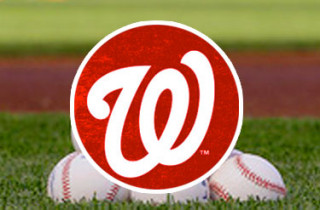Coming into spring training, was there any player on the Nationals roster who had more riding on this season from an individual perspective than Ian Desmond?
Sure, guys like Jayson Werth and Adam LaRoche felt the need to put up bounceback campaigns after really tough 2011 seasons. But they were proven big leaguers who simply were coming off a down year. Yeah, Ross Detwiler's emergence this year allowed him to establish himself as a true major league starter and cement a spot in the Nats' rotation for a few years to come. But teams rarely give up on young, left-handed starters who throw 95 mph.
Entering 2012, Desmond still had a lot to prove, and he might have been running out of time to prove it.
The Nationals brass knew years ago that Desmond had the potential to be an elite shortstop. They had seen his defensive play improve from when he was first called up in 2009 through 2011, watching his errors drop from 34 in 2010 to 23 last year.
They'd seen flashes of his power potential. They knew he could reach base at a consistent clip, as evidenced by his .401 on-base percentage split between Double-A Harrisburg and Triple-A Syracuse in 2009.
The talent was there, but the performance at the major league level hadn't been. Desmond hit just .253 in 2011, his second full season in the majors. His on-base percentage dropped to .298, he slugged just .358 and he struck out 139 times.
Fans called for the Nats to trade Desmond or to release him outright. Teams called Nats general manager Mike Rizzo asking if he was ready to part with his shortstop. But Rizzo stuck by Desmond, and this spring, the then 26-year-old received a confidence boost when manager Davey Johnson told him not to look over his shoulder.
You're my guy, Johnson told Desmond. I'm going to run you out there every day, so just go play, the manager said.
Desmond responded by putting up the type of season the Nats had thought him capable of all along.
Here are Desmond's offensive totals this season, with his rank among major league shortstops in that category in parenthesis: he batted .292 (third among qualifying shortstops), hit 25 home runs (first), drove in 73 runs (tied for second), slugged .511 (first), posted an OPS of .845 (first) and stole 21 bases (tied for seventh).
He did all that while playing in 24 fewer games this season than he did each of the last two years, as oblique and hamstring injuries caused him to miss time.
Desmond's on-base percentage jumped 37 points from 2011, his OPS rose nearly 200 points and his ratio of strikeouts to plate appearances dropped even though his home run total more than tripled his output last season.
With the help of LaRoche's Gold Glove-caliber defense at first, Desmond cut his error total to 15 in 2012, and he rarely made the wild, out-of-control throws we saw in past years.
This was a prove-it season for Desmond, and he did just that, making his first All-Star team, giving himself a good shot to win the Silver Slugger and firmly establishing himself as the Nationals' shortstop of the future.
Don't be surprised if we hear of the Nats and Desmond's camp talking about a contract extension this offseason. The Nats long felt Desmond could be a top-notch major league shortstop, and he's become just that.
By accepting you will be accessing a service provided by a third-party external to https://www.masnsports.com/





